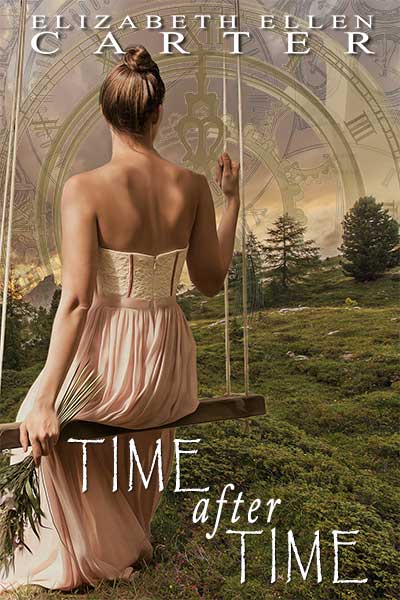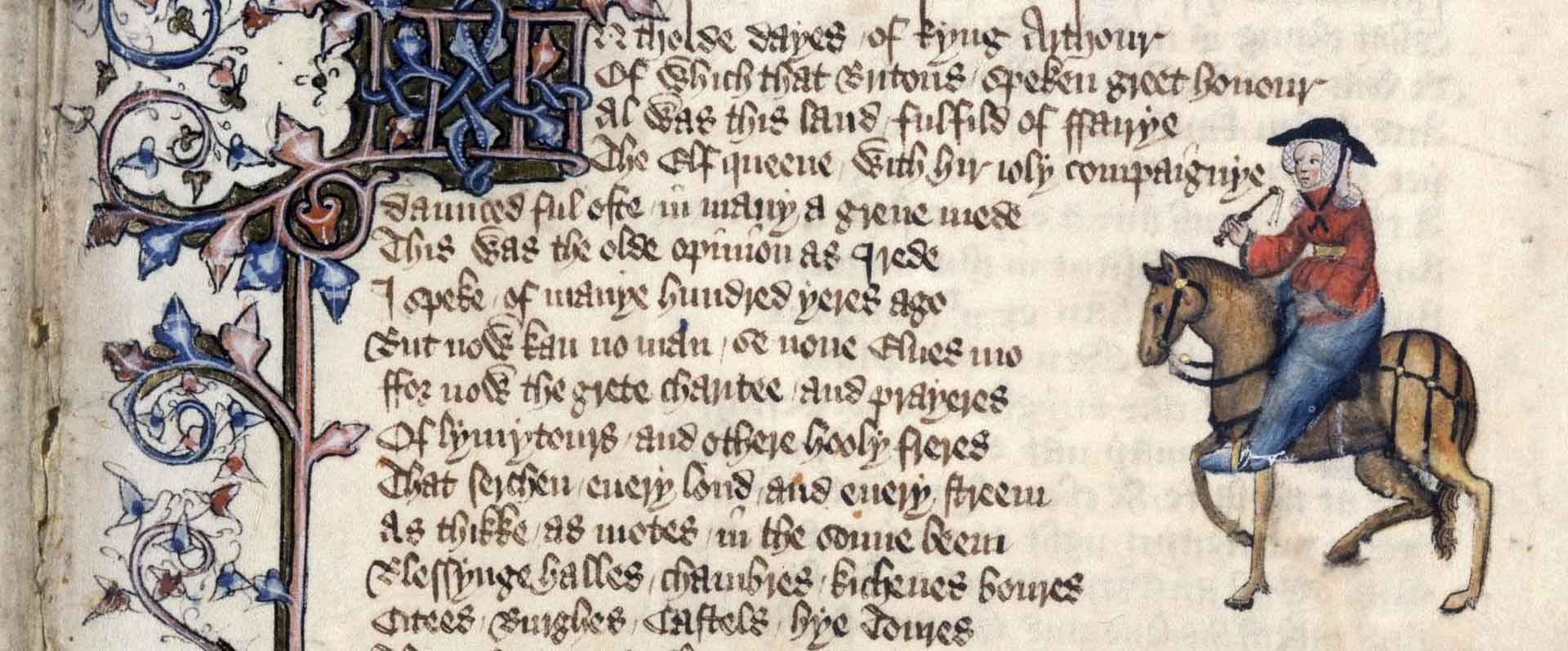Have you ever wondered what it might be like to live in another time and another place? I have!
I was pondering the question earlier this year when I released my collection of short stories, Time After Time.
To close one’s eyes and open them to find a world unlike your own would be quite a trip. Let’s go back medieval England, for example.
First of all, even if you’re a native English speaker, you would struggle to be understood because Middle English was strikingly different to our language today.
Here is an example from the writer Geoffrey Chaucer (c.1340s – 1400) who is widely considered the greatest English poet of the Middle Ages. Best known for The Canterbury Tales, he has been called the ‘father of English literature’.
This is from the Prologue to The Wife of Bath’s Tale, as Chaucer wrote it:

“Experience, though noon auctoritee Were in this world, is right ynogh for me To speke of wo that is in mariage; For, lordynges, sith I twelve yeer was of age, Thonked be God that is eterne on lyve, Housbondes at chirche dore I have had fyve If I so ofte myghte have ywedded bee And alle were worthy men in hir degree. But me was toold, certeyn, nat longe agoon is, That sith that Crist ne wente nevere but onis To weddyng, in the Cane of Galilee, That by the same ensample taughte he That I ne sholde wedded be but ones.”
Here it is again, the same passage translated into modern English:
“Experience, though no written authority in this world, is good enough for me To speak of the woe that is in marriage; For, gentlemen, since I was twelve years of age, Thanked be God who is eternally alive, I have had five husbands at the church door If I so often might have been wedded, And all were worthy men in their way. But to me it was told, certainly it is not long ago, That since Christ went never but once To a wedding, in the Cana of Galilee, That, by that same example he taught me, I should be wedded only once.”

Another thing a freshly minted time traveler would notice would be the smell. Until the late 1800s sewerage disposal was yet to be mastered. Around the same time, New York had a population of 100,000 horses producing around 2.5 million pounds of manure a day, while in Britain, The Times newspaper predicted in 1894 that ‘in 50 years, every street in London will be buried under nine feet of manure’.

At the start of the 20th century, getting fresh water enough to bathe was a luxury indeed. Even into the 1960s in some poorer parts of England where there were outside toilets and no bathrooms, a tub full of hot water was so difficult a commodity to raise that a bath was a once-a-week affair, a tin tub in the kitchen filled by boiling kettles, in which father bathed first, then mother, then the children.
Most striking of all, I believe, would be the relative quiet. To be sure the towns would be busy with the hubbub of life and commerce but do me a favour right now… Close your eyes and listen, you might hear birdsong, but what else can you hear? Cars and trucks going past? Aircraft? Sirens? The whine of a power saw or other power tools?
But of all of these differences, it would be the ones you couldn’t see which would be the most deadly – diseases such as cholera, scarlet fever, pox of various types for which there was no cure. Infections were common, untreatable, and often fatal. Sanitary products from toilet paper to tampons did not exist, let alone the convenience and relief of an aspirin for headaches or other kinds of medications on which we rely today.
As a result, research suggests that at the beginning of the 19th century no country in the world had a life expectancy longer than 40 years. The vast majority of people lived in extreme poverty, and the lack of medical knowledge meant our ancestors rich or poor had to be prepared for an early death.
No, for me, I’ll restrain my time travel to the pages of my favourite historical romance books, where I can walk in the shoes of heroes and heroines of the past in comparative comfort and safety!
This article first appeared in the March 2021 edition of Love’s Great Adventure magazine.
Read the full magazine here.


